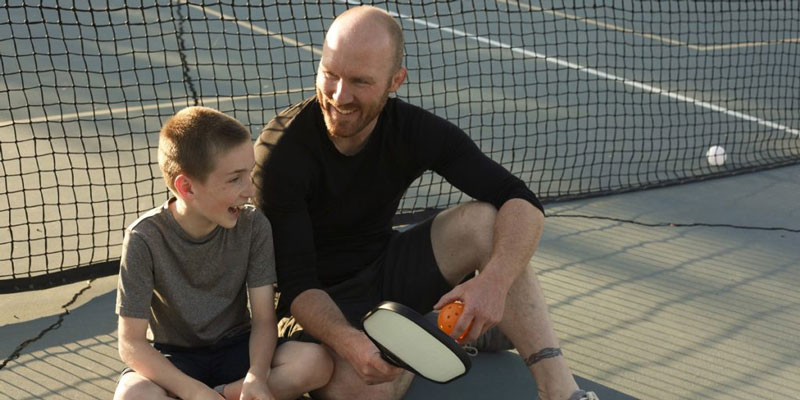The cost of all this experimenting quickly increases when you include sport-specific gear and registration fees. Once your kid decides to compete at a higher level in a particular sport, the associated expenditures will undoubtedly increase. It would help if you prepared yourself for the possibility of greater coaching fees, travel expenditures for competitions (including the cost of food, petrol, and lodging), event entrance fees, membership fees, and the purchase of more specialized equipment.
Keeping your children physically and intellectually active may be a pricey activity, but this does not have to be the case. is an excellent chance for a group to hold a fundraising event? There are many free and low-cost options available. We have come up with seven different approaches to assist you in assisting your athletic child.
1. Individual Sponsors
It might be awkward to ask your loved ones and acquaintances for financial assistance. Still, the vast majority of individuals, if asked, would be ready to provide a few bucks to help achieve a certain objective. Provide concrete evidence as to why your kid needs $X in cash by a particular date to cover certain expenses. For instance, "River needs $100 to attend a two-day camp that will help improve goaltender abilities," and "the camp will help build goalie skills." Your kid could be the one to approach their friends and family members, depending on how old they are. The best kind of financial assistance comes from consistent contributions from sponsors.
2. Local Business Sponsors
When your child is eight years old, there is little possibility that they will get signed on by Nike, but you may seek financial aid from local companies. Again, it is better to approach the company with a specific aim, or at the very least, a set of data, to maximize your chances of success. It is important to give prospective sponsors information on the typical annual expenditures involved with participating in the sport and the beneficial individual and communal elements associated with the activity. Mention the advertising possibilities that may be available and offer to write a thank-you editorial for the publication that serves your community.
3. Donations of Goods and Services
Some companies may decide that rather than contributing cold, hard cash, they may provide things off to earn funds. Please ensure the donor is on board with the idea of holding a raffle; the odds are good that they will be because it may bring in a lot of attention. This is an excellent chance for a group to hold a fundraising event.

4. Work A Deal with The Organizer
You will need to pay a costly monthly tuition fee for your kid to engage in some sports, such as gymnastics or tennis. You may be able to negotiate a lower price for registration if you either possess a unique ability that the event's Organizer can use or are willing to "donate" your time working at the event's front desk. You may be able to offer to build their website, fix a piece of their equipment, or make their costumes, depending on the abilities you possess.
5. Establish Your Website
Many aspiring young athletes have websites where they share their goals with the rest of the world. Make sure the website has clear instructions for contributing, such as a button labeled "Donate" that can be found on PayPal. Donors take pleasure in keeping abreast of the athlete's progress; thus, the athlete's competition results and other accomplishments must be kept current. Make sure that everyone is aware of the webpage, and urge them to forward it to anybody they know who may be interested.

6. Fundraising
Those individuals who are hesitant to contribute money only for the nice and fuzzy feeling of helping your child can be inspired to do so if they receive something practical in return for their contribution. You and your kid may manufacture something to sell, such as cookies and cakes (be sure to include an ingredient list in case customers have food sensitivities), jewelry, or even plants.
7. Put The Kids to Work
If your kid wants to compete at a high level in their sport, they won't have much time left to dedicate to other activities that may earn them money. Despite this, your child is still able to contribute by helping out around the house in exchange for an allowance (even though this money is yours regardless, it teaches the child how to work towards a goal, or by doing odd jobs as their schedule allows.



